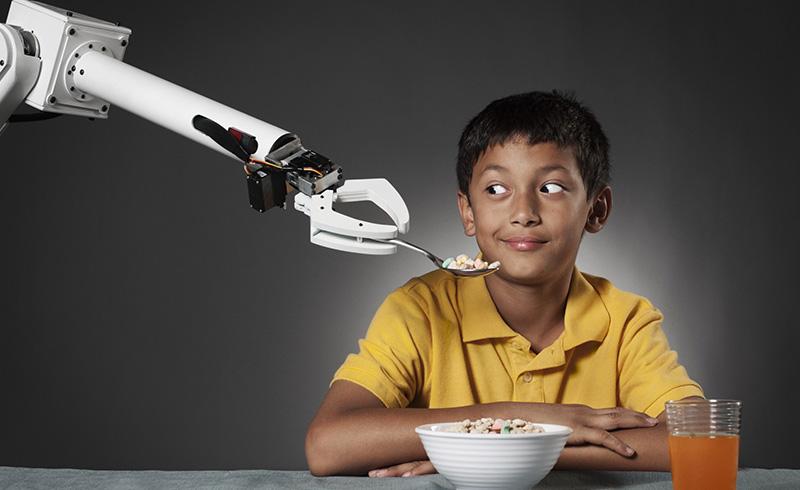When we talk about innovation, one of the hot topics is whether artificial intelligence systems will enhance or replace human intelligence. It’s a trend that’s garnering interest and spurring on international markets of startups to amounts of over 5 billion dollars per year. But is a bond between human and digital possible? Yes, according to the expert Erik Andrejka, CTO of Wellio, who said at Seeds&Chips, “it can’t replace farmers or cooks, but it can and must give them better tools so they can become more efficient.”
Cocktails, recipes and wines created with big data
Artificial intelligence has been successful because it’s been able to personalize products, really putting the client first. That’s what Foodpairing.com does. As an artificial intelligence platform that offers suggestions for food and drinks, “we use an algorithm that invents new flavors based on ingredients with common features,” says Johan Langenbick, cofounder of Foodpairing. “And about a half a million chefs around the world are collaborating!”
A spin-off of this project is Tailor Made, for mixing drinks. It uses an algorithm to create personalized cocktails by measuring the flavors, sweetness and other characteristics of the ingredients to adjust for anyone’s tastes. It goes without saying that young people are crazy about it.
However, big data can also help another group within the food and beverage sector – sommeliers. Thomas Rayra, CEO of Matcha is sure of this, saying “We’ve created a digital system to help sommeliers with their skills, because in a few years all of our choices will be conditioned by artificial intelligence.”
Smarter kitchens, with IKEA leading the way
Innovation isn’t limited to the food sector – but it’s especially noticeable in the furnishings and appliances that go along with it. Home giant IKEA is leading the pack in integrating artificial intelligence into its products. How? With plans for Smart Kitchen that can weigh ingredients and suggest recipes, as well as having connected fridges and ovens that communicate between each other and with the user.
The American company Innit also launched their kitchen of the future – smart and hyperconnected. Expiration dates, quantities and recipes will all be controlled and suggested by the kitchen itself by using a platform that connects and syncs all the appliances with an app.
Automating creativity: working with people or going beyond?
So the obvious question is: does this mean an end to human creativity in the kitchen? We say no, not even close. This is more about “computational creativity,” or technology that simulates human creativity. It might have the potential to eventually replace it, but that’s not what it’s aiming to do. Its real purpose is to bolster people’s intellectual powers, and to offer chefs, experts in the field and other enthusiasts new possibilities for eating better.



